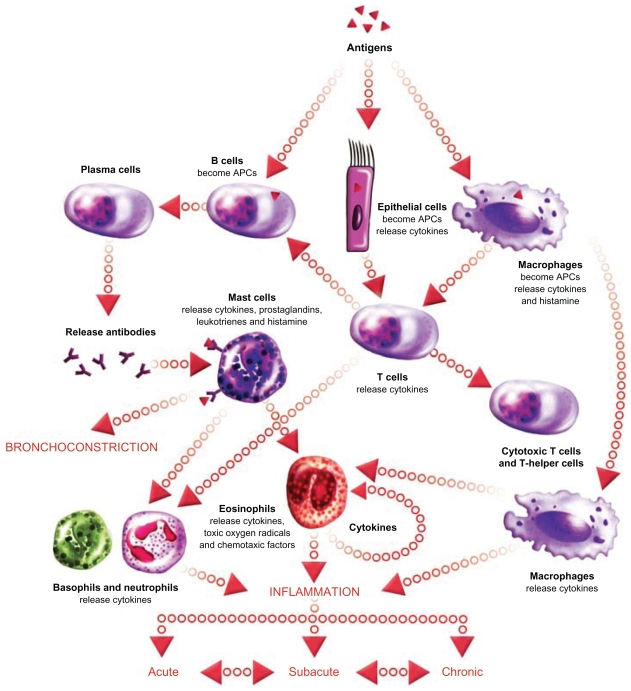Figure 3.
The inflammatory cascade in asthma. Acute-phase inflammation is triggered when inhaled allergens are captured by antigen-presenting cells (epithelial cells, dendritic cells, macrophages) and presented to T cells. Activated Th2 cells trigger B cells to become antibody-producing plasma cells. Plasma cells release antigen-specific IgE which binds to IgE receptors on mast cells. Activated mast cells degranulate releasing histamine which binds to receptors on airway smooth muscle cells, triggering contraction and airway narrowing. Repeated bouts of acute inflammation can lead to chronic inflammation with persistent airway eosinophilia and/or neutrophilia. Image courtesy of EPG Online at www.epghealthmedia.com.
Abbreviation: APC, antigen-presenting cell.

